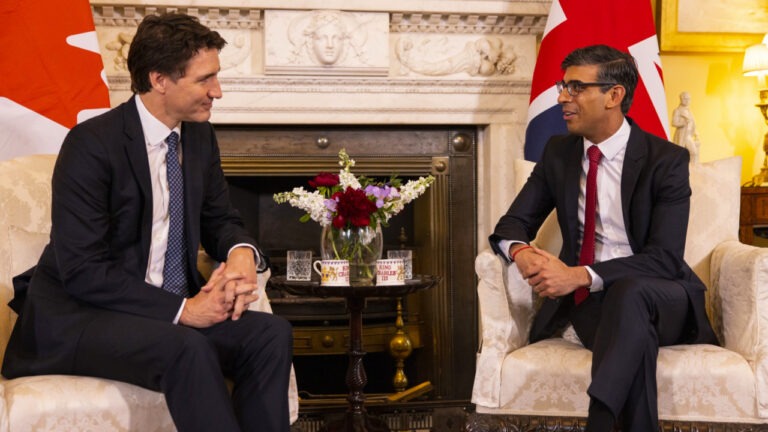
James Skinner
James is the Founder & Chief Executive of
CANZUK International in Vancouver, Canada
No one can deny that airline fees are becoming more and more expensive across the CANZUK countries. From taxes and surcharges, to ever-increasing operational insurance rates, there are multiple reasons why tickets are taking a bigger and bigger chunk out of travelers’ wallets.
However, one reason in particular that is accountable for ever-increasing costs in Canada is cabotage.
Cabotage refers to the transportation of passengers between two points within a country by a carrier that is not headquartered or registered in that country. In Canada, cabotage is regulated by the Canada Transportation Act and the Air Transportation Regulations, and generally prohibits foreign carriers from providing domestic services within Canada unless they have been granted a specific exemption by the Canadian government.
However, as the CANZUK campaign continues to make progress, there are several reasons why airlines from Australia, New Zealand, and the United Kingdom should be exempt from these cabotage rules under a future agreement between the four nations.
Cabotage refers to the transportation of passengers between two points within a country by a carrier that is not headquartered or registered in that country. In Canada, cabotage is regulated by the Canada Transportation Act and the Air Transportation Regulations, and generally prohibits foreign carriers from providing domestic services within Canada unless they have been granted a specific exemption by the Canadian government.
However, as the CANZUK campaign continues to make progress, there are several reasons why airlines from Australia, New Zealand, and the United Kingdom should be exempt from these cabotage rules under a future agreement between the four nations.
First, a CANZUK agreement would promote greater economic cooperation and integration between Canada, Australia, New Zealand and the UK. Allowing airlines from these countries to operate domestic services within Canada would facilitate the movement of people between these countries, which would be beneficial for businesses and tourists (as well as cargo and backup supply-chains).
Second (and probably the most popular reason), exempting these airlines from cabotage rules would increase competition in the domestic aviation market, which could lead to not just lower fares and improved service for Canadian consumers, but additional freedom of choice – in loyalty programs, pet/baggage/stopover policies, etc.
At present, Canadians are mostly limited to flying domestically (and internationally) on flights operated by Air Canada and Westjet, leaving competition stifled and prices much higher than those in the neighbouring United States.
By opening up the market to foreign carriers, Canadian airlines would be forced to compete with these airlines, which could lead to more competitive pricing and better service.
According to the International Air Transport Association (IATA), increasing competition in the aviation market does indeed lead to lower fares for consumers. In a study of 58 country markets, IATA found that liberalization of the aviation market was associated with an average fare reduction of 16%. A study conducted by the Air Transport Research Society also found that increased competition in the aviation market lead to improved service quality, and that as the level of competition in a market increased, the likelihood of airlines providing additional services, such as in-flight entertainment and online booking, also increased.
Finally, a CANZUK agreement would provide an opportunity to establish a common aviation market between these countries, similar to the European Union’s single aviation market. This would allow airlines from these countries to operate freely within the participating countries, which would be beneficial for both carriers and consumers.
The European Union’s single aviation market has been successful in increasing competition and connectivity within the EU. A study by the European Commission found that the single aviation market has resulted in an increase in the number of routes and destinations served, as well as a decrease in average fares for passengers. Today, it is common to hear of extraordinarily cheap flights offered through airlines such as RyanAir and EasyJet, travelling similar distances to domestic flights in Canada but at a fraction of the price.
According to the International Air Transport Association (IATA), a common aviation market can also lead to increased economic growth and job creation. In a study of the economic impact of liberalizing the aviation market in Latin America and the Caribbean, IATA found that liberalization was associated with an increase in GDP of 1.1% and the creation of over 220,000 new jobs.
Overall, exempting airlines from Australia, New Zealand, and the UK from cabotage rules in Canada under a CANZUK agreement would promote economic cooperation, increase competition, and create a common aviation market between these countries, which would be beneficial for all parties involved.
It is only logical that as the CANZUK campaign promotes freedom of movement for citizens between these countries, so too should it promote the liberalizing of the aviation sector to support this freedom of movement.
Second (and probably the most popular reason), exempting these airlines from cabotage rules would increase competition in the domestic aviation market, which could lead to not just lower fares and improved service for Canadian consumers, but additional freedom of choice – in loyalty programs, pet/baggage/stopover policies, etc.
At present, Canadians are mostly limited to flying domestically (and internationally) on flights operated by Air Canada and Westjet, leaving competition stifled and prices much higher than those in the neighbouring United States.
By opening up the market to foreign carriers, Canadian airlines would be forced to compete with these airlines, which could lead to more competitive pricing and better service.
According to the International Air Transport Association (IATA), increasing competition in the aviation market does indeed lead to lower fares for consumers. In a study of 58 country markets, IATA found that liberalization of the aviation market was associated with an average fare reduction of 16%. A study conducted by the Air Transport Research Society also found that increased competition in the aviation market lead to improved service quality, and that as the level of competition in a market increased, the likelihood of airlines providing additional services, such as in-flight entertainment and online booking, also increased.
Finally, a CANZUK agreement would provide an opportunity to establish a common aviation market between these countries, similar to the European Union’s single aviation market. This would allow airlines from these countries to operate freely within the participating countries, which would be beneficial for both carriers and consumers.
The European Union’s single aviation market has been successful in increasing competition and connectivity within the EU. A study by the European Commission found that the single aviation market has resulted in an increase in the number of routes and destinations served, as well as a decrease in average fares for passengers. Today, it is common to hear of extraordinarily cheap flights offered through airlines such as RyanAir and EasyJet, travelling similar distances to domestic flights in Canada but at a fraction of the price.
According to the International Air Transport Association (IATA), a common aviation market can also lead to increased economic growth and job creation. In a study of the economic impact of liberalizing the aviation market in Latin America and the Caribbean, IATA found that liberalization was associated with an increase in GDP of 1.1% and the creation of over 220,000 new jobs.
Overall, exempting airlines from Australia, New Zealand, and the UK from cabotage rules in Canada under a CANZUK agreement would promote economic cooperation, increase competition, and create a common aviation market between these countries, which would be beneficial for all parties involved.
It is only logical that as the CANZUK campaign promotes freedom of movement for citizens between these countries, so too should it promote the liberalizing of the aviation sector to support this freedom of movement.
Heading photo: u/acey91
Share this:
Facebook
Twitter
LinkedIn
WhatsApp
Email



